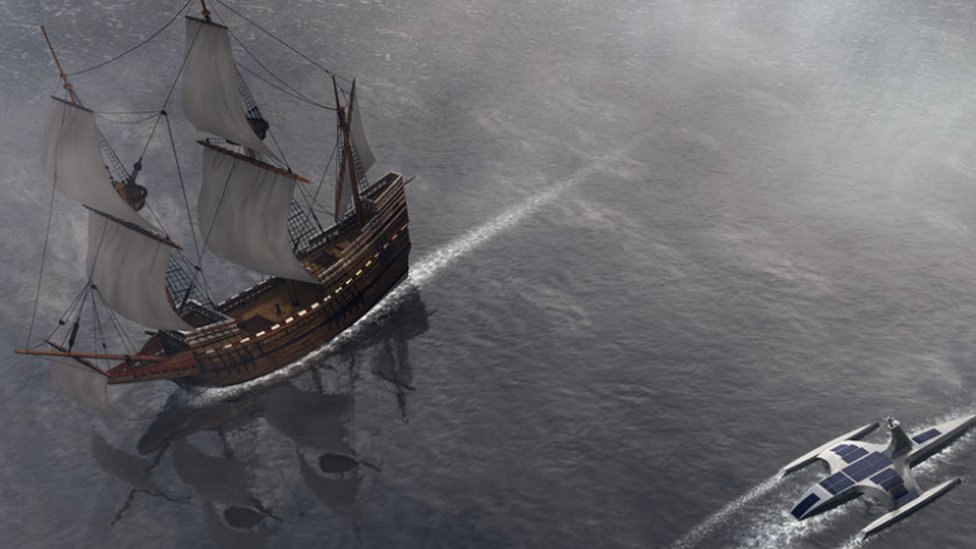A crewless ship aiming to recreate the Atlantic crossing of the Mayflower, 400 years ago this month, will set sail from Plymouth harbour on Wednesday.
The Mayflower Autonomous Ship will collect data on the ocean and marine life, including sampling for plastics.
Captained by a robot trained by IBM-designed artificial intelligence, using a million nautical images, it will complete six months of sea trials before its two-week Atlantic crossing.
The 1620 crossing took over two months.
The original Mayflower, a 100ft (30m) triple-masted wooden vessel with canvas sails and a maximum speed of three knots (6km/h), carried 102 passengers and a crew of about 30 from Plymouth to Cape Cod, Massachusetts.

image copyrightIBM
The 2020 version, made of aluminium composite, by non-profit organisation ProMare, is a trimaran fuelled by solar-powered batteries, with a back-up diesel generator and a maximum speed of 10 knots.
And instead of passengers and crew, it is packed with technology, including:
- lidar
- radar
- cameras
- global positioning system (GPS) antennas
“Able to scan the horizon for possible hazards, make informed decisions and change its course based on a fusion of live data, the Mayflower Autonomous Ship has more in common with a modern bank than its 17th-Century namesake,” IBM chief technology officer Andy Stanford-Clark said.
website shows the ship’s current location and status, the course of its voyage and samples from its research pods.